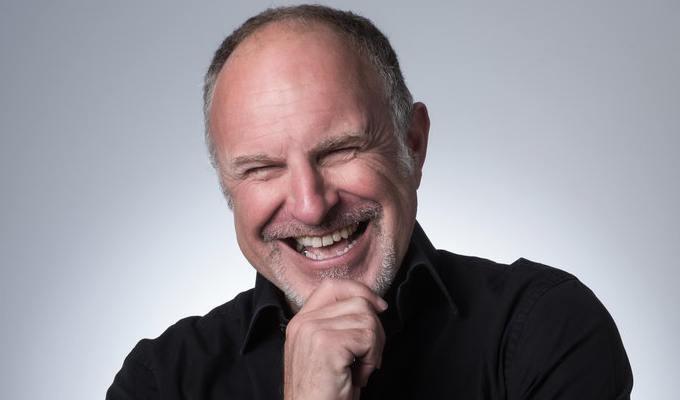Why I made those Magners ads
by Mark Watson
When I accepted the offer to advertise Magners cider earlier this year I was well aware of some of the credibility pitfalls associated with such a move; being compared with Bob Hoskins seemed one of the more remote ones. I’ve always avoided appearing in partly-animated films about rabbits in the hope of avoiding such comparisons.
But David Jesudason’s Chortle article, not content with this, also accused me of having shown contempt for my fans, betrayed the ethos of stand-up comedy, and ignored ‘the ills of society’. As well as implying, in spite of the overwhelming evidence of the advert, that Magners is a ‘tasteless bitter’. While some of these points are flimsy enough to be disregarded, the attack on my personal integrity has provoked me into replying, even though Carl Donnelly’s follow-up piece did a fine job of examining the bigger picture.
I like to think I’ve behaved with reasonable integrity in my career. I’ve resisted numerous offers to make my 24-hour shows profitable, for example, in the hope of preserving the experience for the people who come to see it. At the Fringe just gone, I did a series of non-profit lectures on climate change (the sort of thing, in David’s opinion, comedians ought to be addressing). I’ve turned down appearances on TV shows I didn’t like or approve of.
Most pertinently to the current debate, I spent the best part of the last two years writing a novel which my publishers rejected as being too ‘uncommercial’. Coming as it did a week after this enormous professional setback, my decision to support my family by doing an ad would, I think, be intelligible to most people, if not to Mr Jesudason.
As a journalist he should be careful about putting words into others’ mouths. Robert Webb might have said adverts were ‘money for old rope’, but for me the reasoning was by no means as casual as that. I accepted the Magners job because the money has allowed me the freedom to take on unpaid or hardly-paid projects which I might otherwise have had to abandon.
Then there’s the wider issue (already well covered by Carl) of whether a comic has a moral imperative, as Jesudason grandly puts it, to ‘shine a light on how power is used to maintain the status quo’. Well, I don’t remember Morecambe and Wise doing much of that. I’ve not built what reputation I have on any sort of anti-capitalist ticket; my entire act has always been based on a load of pointless rambling about nothing in particular.
I have great respect for comics who push a bigger agenda – Richard Herring’s Edinburgh show, on the subject of political apathy and race relations, was one of the best I saw. But then another of my favourites was Simon Amstell’s, which was mostly about wanting to have sex with people and not die.
To claim that we should all be at one of these extremes rather than the other is as silly as claiming that, because Mr Jesudason is usually a football journalist of sorts, he ought to spend all his time writing about Premier League clubs’ illegal poaching of players, and ignore the actual matches.
Indeed, that would be a more valid argument, because by publishing in the Guardian and Independent he makes an implicit claim to be an unbiased and morally responsible observer: a claim which I, as a comedian, would never dream of making.
The final point is simpler, and it applies not just to David Jesudason but to anyone who complains about an ad, or James Corden being on TV too much, or the glut of panel games, or the X Factor spoiling Saturday nights… it is quite possible to not watch these things. David, if you have the leisure time to absorb – let alone be irked by – adverts (which you yourself say are aimed at the ‘lowest of the low’), then perhaps that time would be better spent fighting the ‘ills of society’.
You claim that if there’d been a moral case for it, you would have chained yourself up at Parliament Square to support Brand and Ross. Well, there are plenty of causes out there which are worth chaining yourself up for, if you think it will make a difference, and you don’t need a stand-up comedian to tell you to do it.
There haven’t been many jokes in this article I’m afraid, but I’m confident that whatever David says, I’m not officially struck off the artistic roll-call just yet. I’m going to check the M section of Chortle now, though, just in case.
Published: 11 Sep 2009






